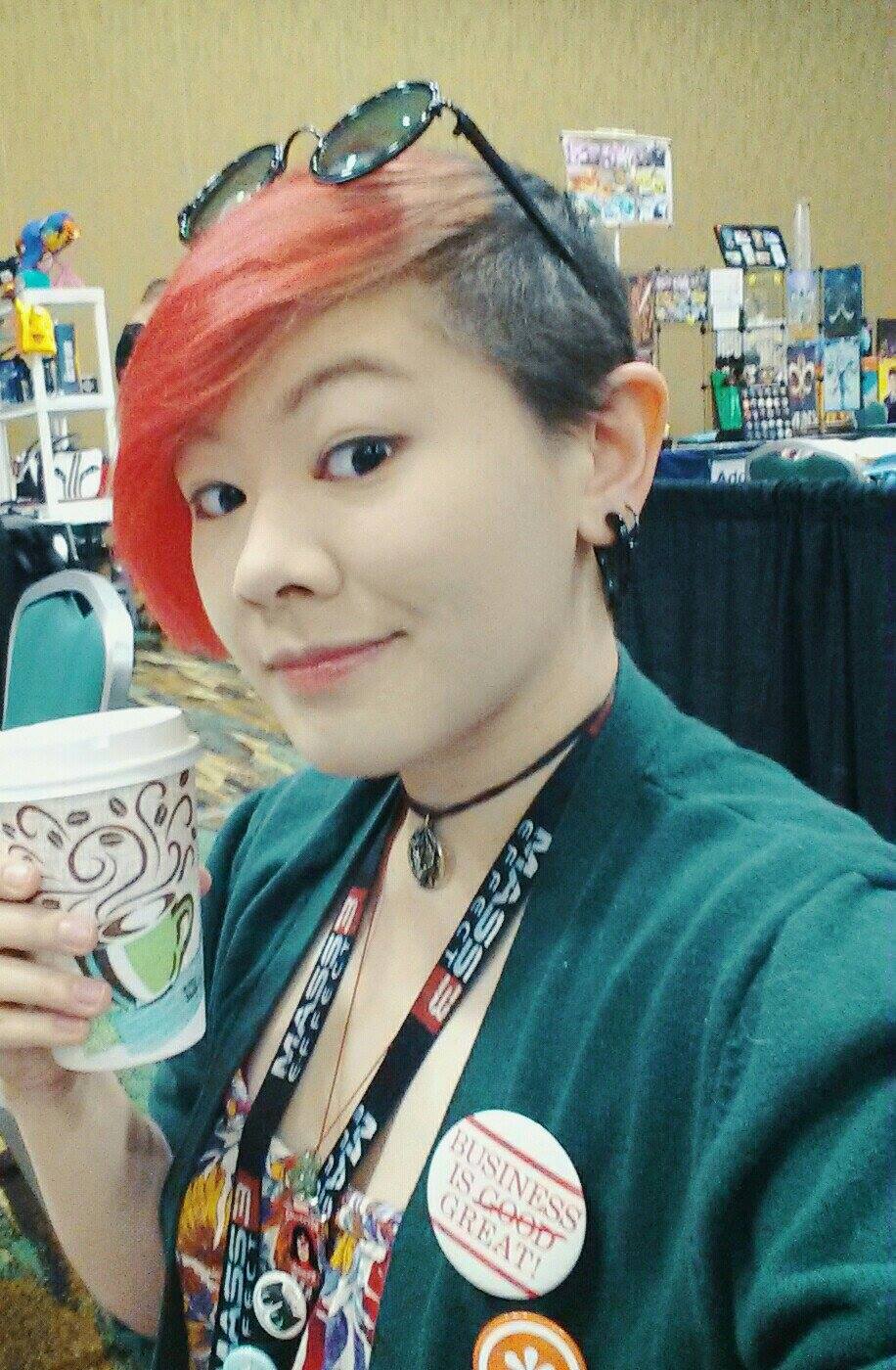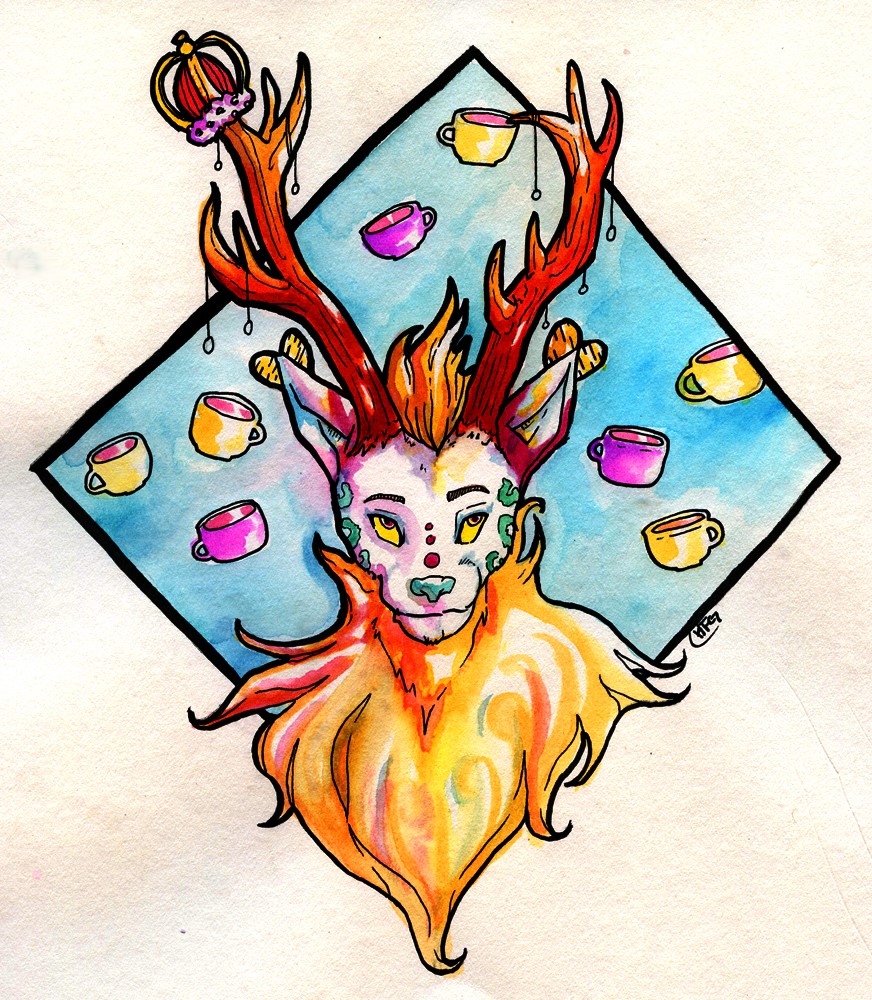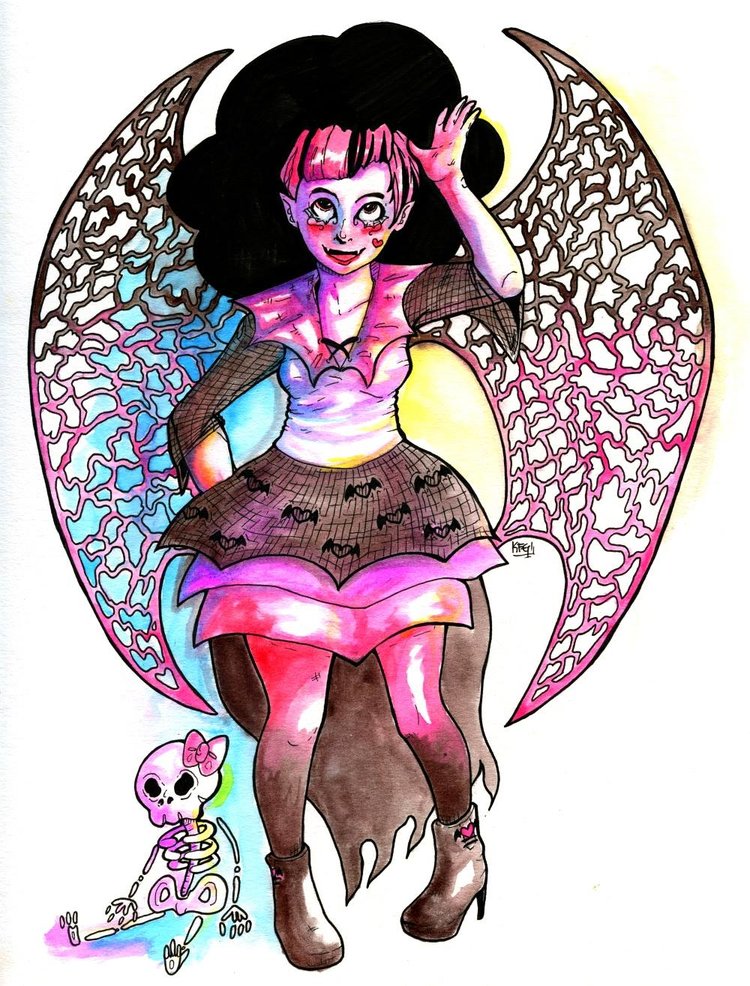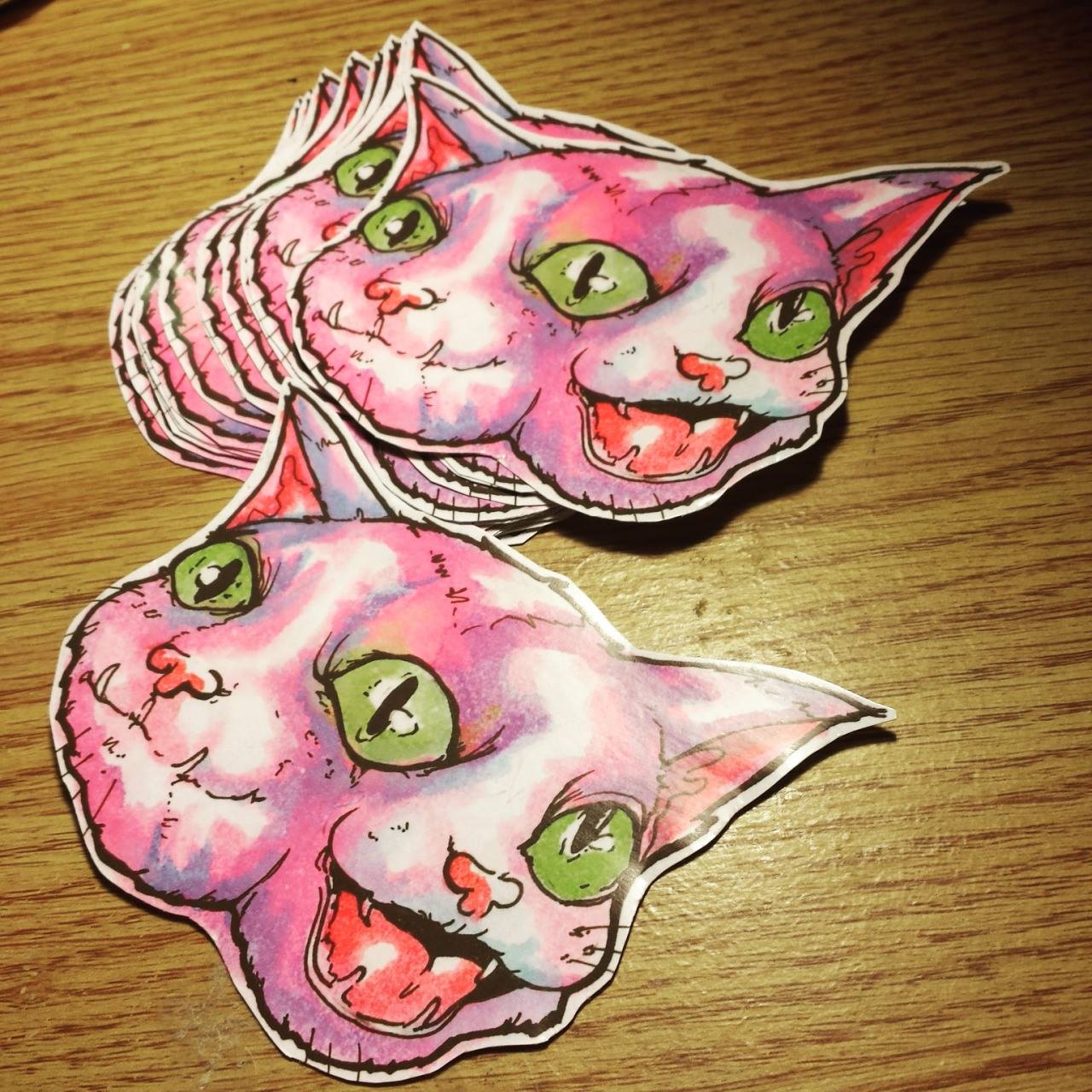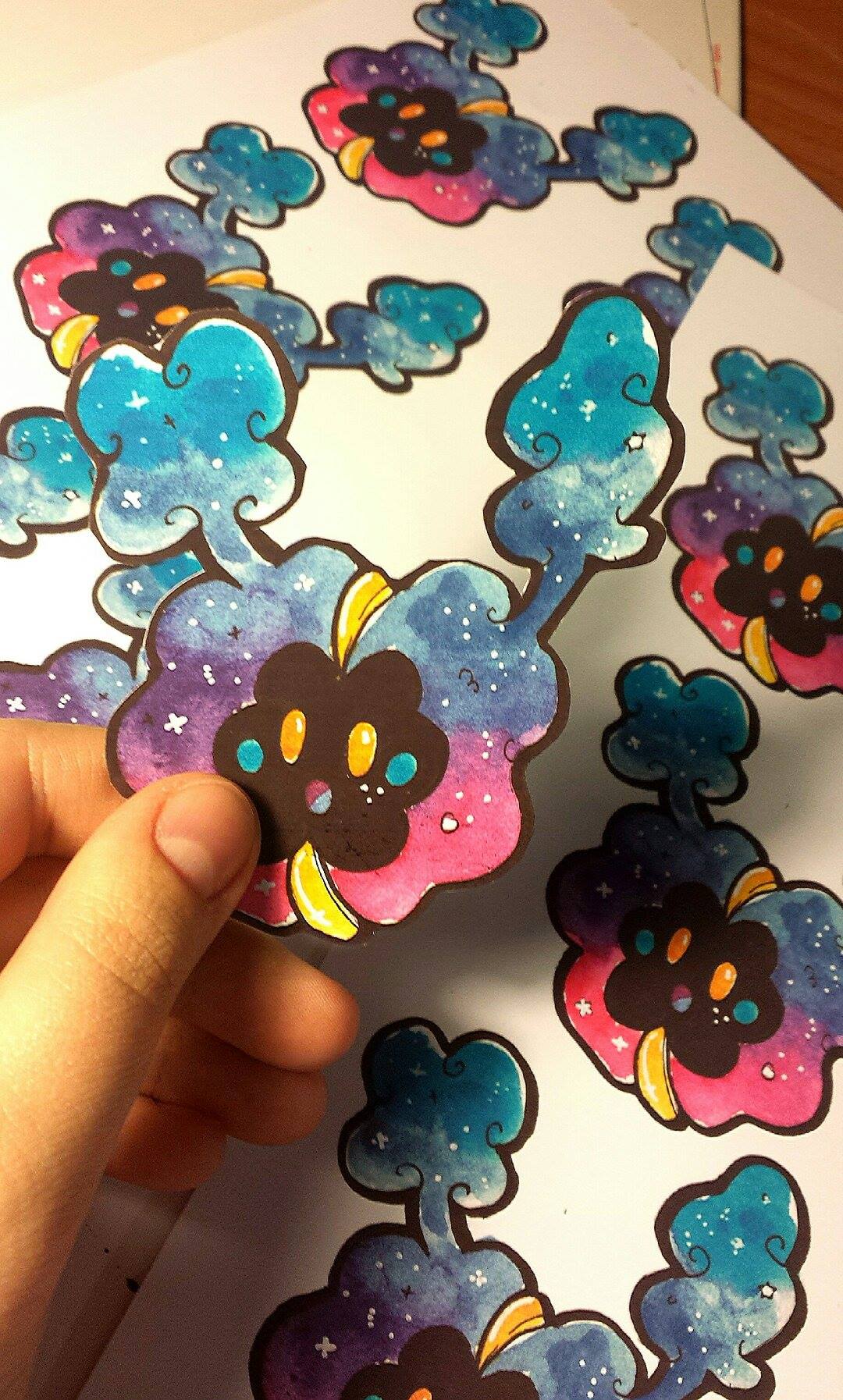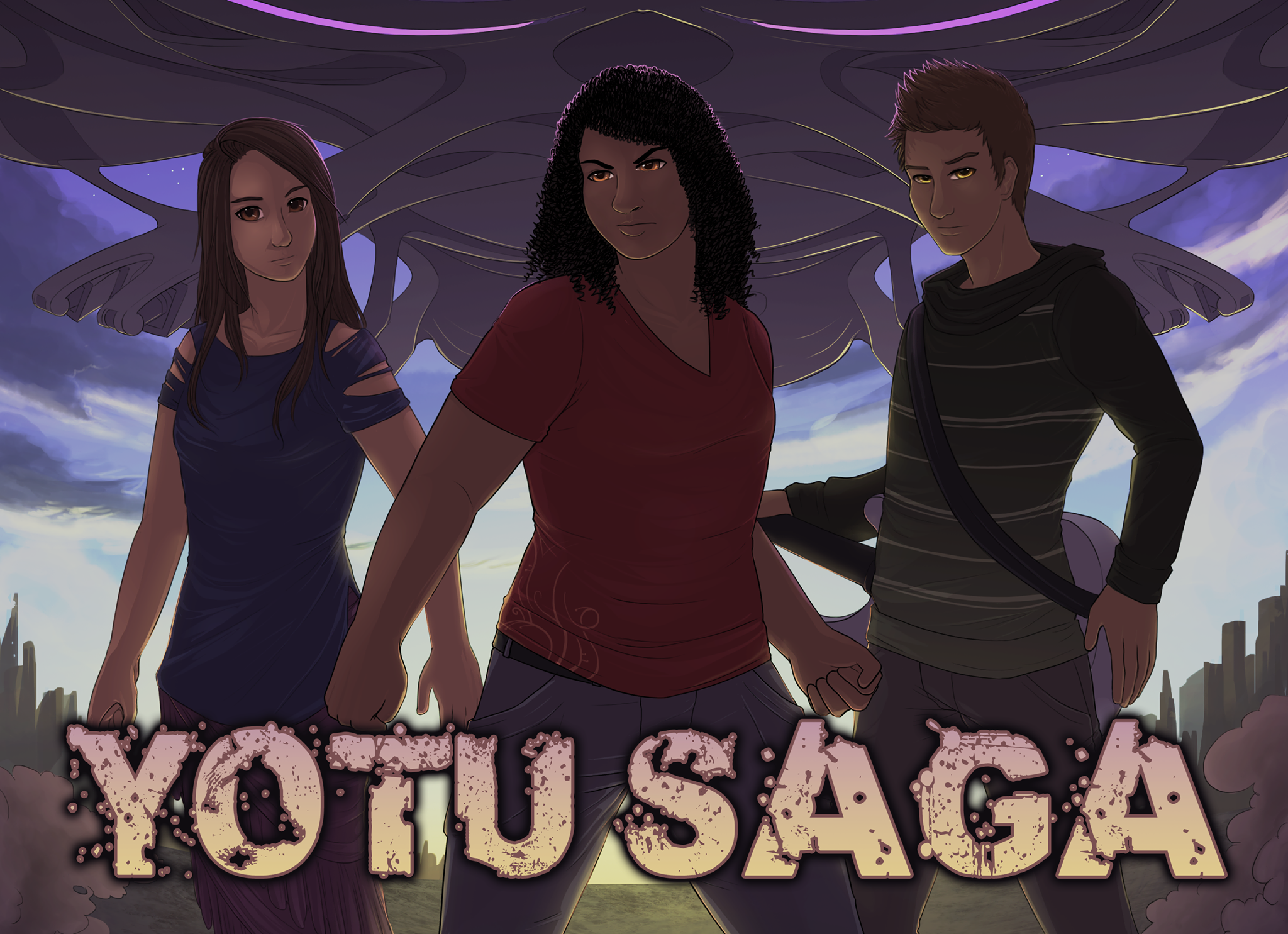As an artist, it seems like the landscape is ever-changing from simply the tools, to the aesthetic. I intend to be an artist that never wants to stop learning, and as such, I find more and more interesting artists every day. Each artist has a unique insight and point of view, no matter the experience level. New views help open my mind and teach me there are many ways to utilize my skills and I hope that sharing our stories will help others in the same way. I believe there are many paths on an artistic journey, and each interview will help to show the stories of the artists that tread them.
Today we'll be interviewing Zuzana "Zue" Ferková.
Kaminski: My first question is typically the same: What got you into doing art in the first place and what KEEPS you doing art?
Zue: I actually got and stayed in the arts mostly because of the people around me. The first piece that I "made" was short lyrics when I was five year old that my cousin had to write down for me because I couldn't back then. I got into writing because I always kept coming up with alien words that helped me understand what was going on around me, but I was never any good with drawings and this was the only way I could express them. I ceased doing any kind of art several times over the years because of lack of time and commitment to other things, but I always came back.
Right before I started college I decided to commit to game development and bought myself a copy of Dragon Age: Origins with intention to create mod content for it. That was the first time I ever got to combine things that I loved to do, e.g. playing games and writing. There's still a challenge and certain pressure with every new game project or task I get to do and it really helps my drive knowing I get to improve this way.
After earning my bachelor and masters in computer graphics, I got myself into coding visual effects, discovering it's something that allows me to use a wide range of knowledge combining coding, art and science (maths and physics). It was bit like a dream coming true!
Right before I started college I decided to commit to game development and bought myself a copy of Dragon Age: Origins with intention to create mod content for it. That was the first time I ever got to combine things that I loved to do, e.g. playing games and writing. There's still a challenge and certain pressure with every new game project or task I get to do and it really helps my drive knowing I get to improve this way.
After earning my bachelor and masters in computer graphics, I got myself into coding visual effects, discovering it's something that allows me to use a wide range of knowledge combining coding, art and science (maths and physics). It was bit like a dream coming true!
Kaminski: Too cool! I've never actually thought about art in that way - blending multiple disciplines together. You're the first person outside of the typical realm of 2D art that I've had the pleasure of interviewing! It might sound like I'm hitting the nail on the head here, but what exactly does a 'shaders' person do? What's a typical day in the life of your job?
Zue: I'm actually a hobbyist in both writing and shader coding, as I'm still studying at university at the moment. I work as teacher's assistant at the university and this is a relatively common question.
Simply put, shaders are just pieces of code that run on graphics cards (GPUs). It's funny to think people are not very familiar with them even if they can be found pretty much anywhere. They are used in different industries, but I get to meet with them most commonly in games. If you ever created a 3D model or 2D sprite and put it into a game engine, shaders would be something that would tell the engine how the light should reflect from your model, or how the 2D sprite should be rendered. Some shaders try to mimic the way physics behave in real world and give you the most realistic looking scenes. Others, that I focused on the most as of now, create stylized graphics, such as Toon shading, Oil Painting effects, or help to enhance the experience from games - motion blurs, depth of fields, film grain, etc.
Simply put, shaders are just pieces of code that run on graphics cards (GPUs). It's funny to think people are not very familiar with them even if they can be found pretty much anywhere. They are used in different industries, but I get to meet with them most commonly in games. If you ever created a 3D model or 2D sprite and put it into a game engine, shaders would be something that would tell the engine how the light should reflect from your model, or how the 2D sprite should be rendered. Some shaders try to mimic the way physics behave in real world and give you the most realistic looking scenes. Others, that I focused on the most as of now, create stylized graphics, such as Toon shading, Oil Painting effects, or help to enhance the experience from games - motion blurs, depth of fields, film grain, etc.
Kaminski: It's really interesting, because at one point, I was considering doing game design myself, and I had this grand idea of making basically a living painting. I always thought that it was down to the way that the animators rendered the characters and things, come to found out that - while not simple by any means - it was shader coders that dealt with this! Amazing! So then, I have to ask, what's it like working in the game industry in this way? Did you have any sort of requirements to get your position doing this?
...[shaders are] a bit like trying to explain art with math.
Zue: Where I live there's a relative large number of really good game development studios that are looking for all different kinds of people. I started to keep a blog with tutorials that would show the shaders I created and shared it in a local gamedev group. To my surprise it got quite a feedback and I discovered there is a relatively small number of people around who do things like these. The nature of the position makes it quite interesting, in my opinion, because, especially with non-photorealistic effects, you are trying to somewhat quantify and automatize what art is and write a piece of code that would be able to create this effect. So it's a bit like trying to explain art with math. Yet once you start it's still inherently a technical discipline, where you spend two weeks looking for a bug, to find out you are missing a semicolon at the end of a line. The usage of shaders in real-time rendering also requires the math to be as fast as possible. There is a strong demand to always learn new things and to improve.
Kaminski: Oh wow! We're kind of remote from the industry where I live, so it's good to know that perhaps gamedev groups might be a way to go.
On a completely different note: I love that you're so multi-faceted as well. Some artists forget that all creative endeavors should be included. What brought you into the realm of creative writing? What kinds of writing do you prefer to do?
Zue: That is a tough one. I remember lot of cool little things we were doing with my friends that really showed me how amazing writing can be. It started small, just writing down random adjectives and changing every adjective in a story (poor Cinderella's story got all sorts of weird), even if it doesn't seem like much, it made me feel like I made the story mine a little bit.
In high school we started making a Harry Potter parody based off a first book just by pretty much turning it into a play. This was all fun, but I think what really got me going and where I started to improve as a writer when I got Dragon Age: Origins, even if this had little to do with the game itself. This is where I first decided to write in English and it was one of the best decisions I made in my life as of now.
In high school we started making a Harry Potter parody based off a first book just by pretty much turning it into a play. This was all fun, but I think what really got me going and where I started to improve as a writer when I got Dragon Age: Origins, even if this had little to do with the game itself. This is where I first decided to write in English and it was one of the best decisions I made in my life as of now.
Writing Sample: Mass Effect 2 - The Blackout - Part I
Personally I love to write fiction, mainly fantasy, or technological fantasy (if not necessarily sci-fi). I've been trying to find a path for myself for a long time and I think I'm finally attaining it! I had the fortune of growing up with both fantasy stories from English speaking countries, but also stories from Central and Eastern Europe. Even if it took me a while, I eventually understood that what I love to write are the stories that are rooted in my historical and cultural heritage, but are still heavily influenced with events all around the world, but put in settings that allow for my own rules.
Kaminski: The other writer of this blog, Ashley, is also a writer - it might be great for you two to maybe talk some to get some feedback on each other's work. With the ability to creative write as well, do you find that one ever wins out over the other? For example, do you find that you're drawn to writing over drawing / painting? What's your preference? And why?
Zue: I take both shader coding and creative writing as a hobby and whichever I go for is influenced by many factors. I am currently doing PhD in Computer Science, so as one would say I make living with my brain! So it's just amazing that I get to do something that releases my creativity when I get back home. I enjoy shader coding, but often it's issue driven for me, meaning that I create shaders if there's a challenge posed. For example, if I'm helping out with a game project and there's a requirement for a shader, it's very likely going to win out because I hate unresolved things (looking at you people telling me "I tried creating this but it didn't work").
Creative writing is more about creating a routine.
Creative writing is more about creating a routine. When I write a story I try to sit down every night and write at least a little bit, whether I feel it's good or bad. Eventually it's very easy to get discouraged by your own process if you look at it and feel it's horrible, even when you spent days or months on it. This happened to me a lot and I always got frustrated feeling I should be better than I am. Thankfully I managed to grow up a little and realized, with a lot of help from my friends, that you have to finish things first if you want to fix them!
Kaminski: That mentality of having the ability to take feedback and apply it was something that most creatives have to learn over time. I'm sure it wasn't a small task for you, but it's nice to see that you seemed to have learned it relatively quickly.
Switching gears: Do you have any projects that you're currently working on that you'd like to promote? I'd love to hear about a current work in progress or completed project that you recently worked on!
Switching gears: Do you have any projects that you're currently working on that you'd like to promote? I'd love to hear about a current work in progress or completed project that you recently worked on!
Zue: Absolutely! I always like to share. Since this is an art channel I can't help but mention the first game I ever created, where I made everything from the story, to art, and even the coding. It's a small story about a guy who tried to be a rebel and managed to erase all colors from an imaginary world, save for red. The game itself takes you through four game screens and tells you of efforts of Mr. Painty (link is below, if you'd like to try the game out) who attempts to fix his errors. I was told it contains a very unique sense of humor!
The first one is a Cyberpunk ARPG Deicides by indie team Hardwired with a lot of very talented and experienced developers involved in the project. The game will have a unique way to modify and develop your characters that should make for a lot of interesting gameplay. I'm actually really excited about the project and encourage everyone who is into the ARPG genre and cyberpunk to pop into the discord server and join the conversation.
The second project that I'm currently working on is a novel of my own, thanks to the NaNoWriMo challenge, the first draft is currently nearing its completion. The story itself takes you into an imaginary world that was ravaged by a war between humankind and slogs - massive and strong, if brainless, beasts - that seem to be set on wiping out everything that stands in their way. It follows stories of three main protagonists both inside the city heavily protected and secluded from the outer world, where people willingly trade their freedom for comfort, and outside of the city where morality civility are second to survival, as they try to own up to their previous decisions and mistakes, and reclaim their lives. The story brings up several issues ranging from environmental problems, adjusting to conformity, even issues between morality and progress! There is a heavy focus on creating a morally grey world as well as characters. Where personal experiences and small acts of courage that will never end up recognized can still influence the fate of the world.
Kaminski: My god! You're busy! I can share this sentiment 100%. And I have to say, you're kind of entering into my dream territory of working on a cyberpunk IP. Speaking of, what's a dream job or IP for you? If you could work on any project, past or present, what would you work on and why?
Zue: Dream job? I'm still trying to figure that out, to be honest. But when it comes to IPs I'd love to work on, whether it'd be a game, or a movie, I'd have to say the Witcher, obviously. I've been a big fan of the world since my teenage years and it'd be great to help contribute to building the universe. Some of the less obvious ones would be the Nightwatch series by Sergei Lukanenko that may not be as famous in western countries, or being a part of a Star Wars game that doesn't revolve around being a Jedi or a Sith (I always root for underdogs).
Kaminski: You have such good taste!
The last two questions are typically the same: what goals do you have set for yourself in the immediate? What about long term?
The last two questions are typically the same: what goals do you have set for yourself in the immediate? What about long term?
Zue: I don't think I have any long term goals in general, I'm a bit impulsive and I tend to decide when the opportunity arises. For right now I want to finish my PhD and see where to life leads me. Being a part of game development community has always been a rewarding experience for me, so this seems like a very likely course of action. In the short term, I want to finish my novel that I'm very excited about and finally get a bigger game project under my belt, although I guess the latter is really a long term plan.
Kaminski: And the final question... what's the best piece of advice you can give to fellow creatives OR what's the best piece of advice you've received thus far?
Zue: Pheeew, which one to pick? I've been given so many good pieces of advice over the years. I think one of the most important lessons when it comes to anything in life that I managed to understand is that everything is a process. Even if you hear all the good pieces of advice in the world it doesn't mean you will instantly become a great artist. For me, the opposite was actually true, I had lot of people trying to help me and I tried to listen, but the lessons never quite settled in until I managed to fail on my own. So my advice would be, don't to be afraid or discouraged to fail, as it actually helps you grow as an artist. But learn to fail fast!
Kaminski: That's some pretty sound advice!
Well, you've definitely given me some awesome insight into what it takes to be a part of
Kaminski: That's some pretty sound advice!
Well, you've definitely given me some awesome insight into what it takes to be a part of
----------------------------------
Thank you all for reading, I hope you enjoyed this interview with Zuzana "Zue" Ferková.
If you did, please give it a SHARE via Facebook or Twitter, below.
You can view this interview, and many more, HERE.
You can find view more of Zue's work at:
https://www.deviantart.com/ponozsticka/
You can play Mr. Painty for free here:
https://gamejolt.com/games/paintaria/17652
Also, the indie game studio, Hard Wired, has a link to the game here:
http://deicides.com/
You can play Mr. Painty for free here:
https://gamejolt.com/games/paintaria/17652
Also, the indie game studio, Hard Wired, has a link to the game here:
http://deicides.com/
If you would like to be a part of my interview series, simply fill out the contact form HERE and I'll get back with you as soon as possible!
----------------------------------
THANKS FOR READING, AND UNTIL NEXT TIME!







